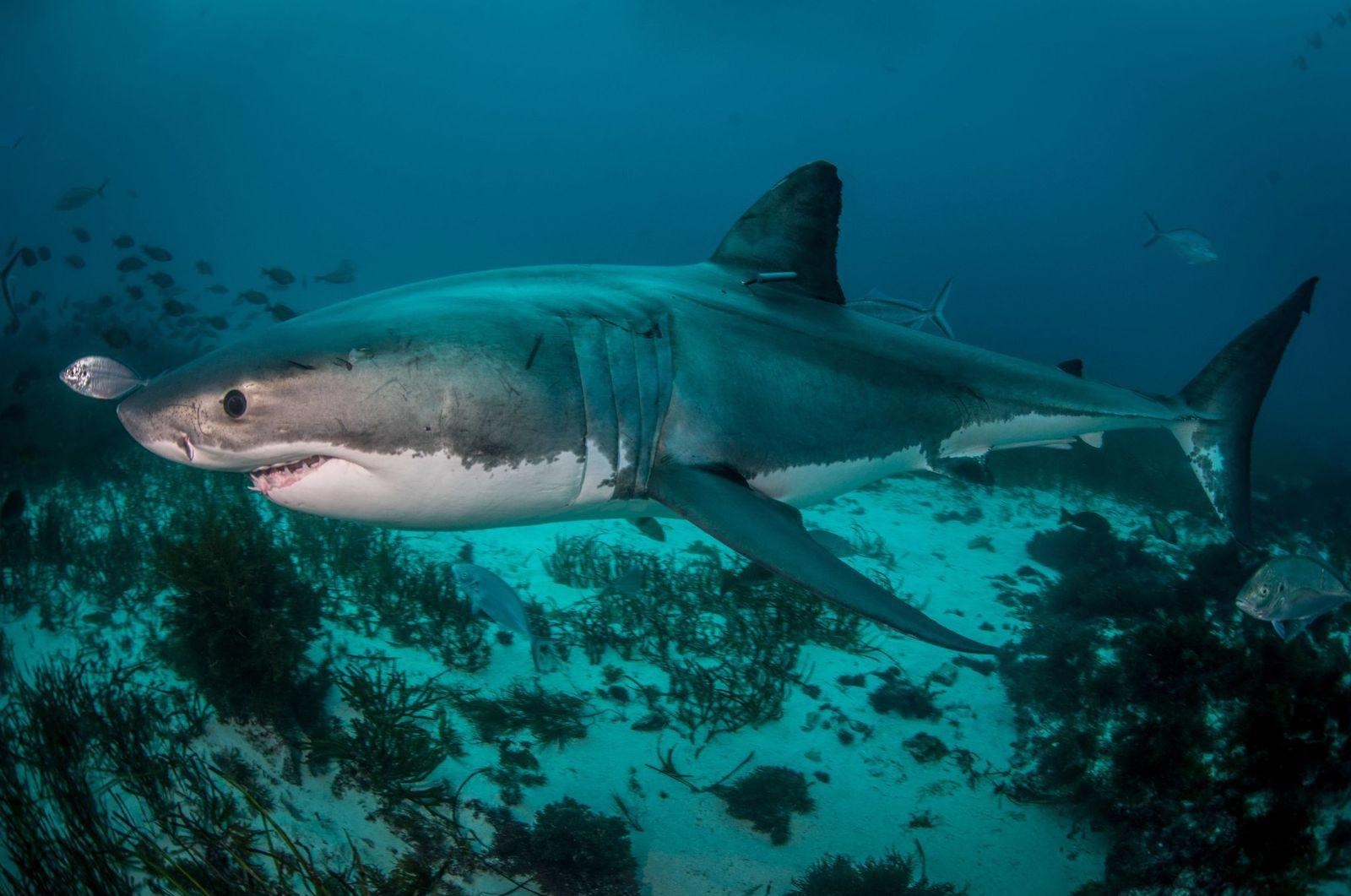Mar 15 2021
In a new study published in the journal Biological Conservation, a team of scientists used data to track the movements of marine life during the Covid-19 lockdown, revealing the impact of human activities in Australian waters.
 Shark Expeditions. Image Credit: Andrew Fox- Rodney Fox
Shark Expeditions. Image Credit: Andrew Fox- Rodney Fox
With shark cage-diving used as a case study, the research team, led by Associate Professor Charlie Huveneers from Flinders University, monitored the movements and residency of two marine species, white sharks and yellowtail kingfish, over a 51-day period during the longest break in cage-diving activity at the Neptune Islands near Port Lincoln for over 20 years.
“The various restrictions on human movements have led to an unprecedented global hiatus in anthropogenic activities, providing a unique opportunity to assess human impact on biological systems,” says Associate Professor Huveneers.
Thanks to the ongoing monitoring program of the white shark cage-diving industry, the movements and residency of tagged white sharks and yellow kingfish were recorded using acoustic receivers deployed throughout the Neptune Islands.
“Our study showed that the movements of yellowtail kingfish were reduced when cage-diving boats were absent compared to periods of standard tourism operations. White sharks on the other hand did not seem affected by the break of tourism activities.”
“While this might suggests that the 51-day break in tourism is not sufficient for white shark to return to their pre-tourism behaviour, it can also be due to current regulations ensuring that the cage-diving industry has minimal impacts on white shark residency.”
“This study shows how acoustic tracking can be used to analyse whether aquatic organisms have been affected by changes in anthropogenic activities during COVID-19, or more broadly how acoustic tracking can be used to quantify the effects of human disturbances on animal movement in the short term.”
The IMOS Animal Tracking Facility network deploys and maintains a national array of acoustic receivers strategically located in waters around Australia to detect and track tagged animals.
Associate Professor Huveneers says the data, published in the scientific journal Biological Conservation, will provide important insight into how acoustic tracking technology can be incorporated to analyse the impact of human behaviour on marine ecosystems.
“Only with the existence of long-term, robust monitoring infrastructure like IMOS are we able to disentangle the complex interaction between long-term impacts such as climate change, coastal development, commercial fishing and short-term, acute impacts such as noise pollution, heat waves, seismic surveys, and oil spills which may drive step changes in systems.”
“Our tracking roadmap is globally applicable and will assist researchers in designing studies to assess how anthropogenic activities can impact animal movement and distributions during regional, short-term through to major, unexpected disruptions like the COVID-19 pandemic.”